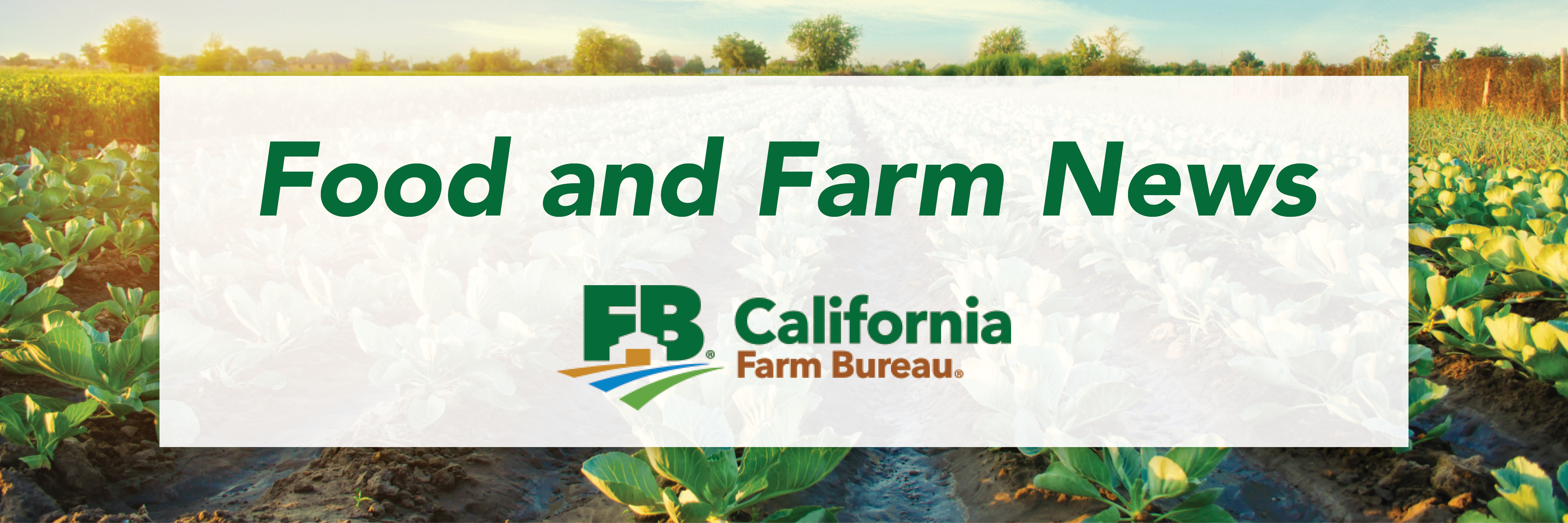Food And Farm News

2-11-2026
Grape glut lessens as growers scrap vines
After a yearslong glut, the market for California winegrapes could reach equilibrium in the near future. The state saw “an explosion” of vineyard removals during the past two years, Jeff Bitter, president of the grower-owned marketing group Allied Grape Growers, said last month at the Unified Wine and Grape Symposium in Sacramento. Between October 2024 and August 2025, winegrape growers removed more than 38,000 acres across California—roughly 7% of the state’s acreage—leaving about 477,000 acres. Experts projected there will be future demand for around 410,000 acres of winegrapes in the state. “We haven’t got to where we need to be yet in order to balance supply and demand,” Bitter said. But he added that ongoing removals and an unknown amount of abandoned acreage due to financial stress could bring production close to the industry target as early as this year.
Bill brings back ag overtime tax credit proposal
A bipartisan bill introduced last month by California state legislators would create a tax credit to offset the cost to farmers of paying overtime wages. Senate Bill 921, authored by state Sen. Shannon Grove, R-Bakersfield, and state Sen. Melissa Hurtado, D-Sanger, aims to mitigate the impact that California’s agricultural overtime law has had on work opportunities for farmworkers. In 2016, the state adopted Assembly Bill 1066, which beginning in 2019 phased in a requirement that farmworkers—like workers in most sectors—be paid time and a half when they work more than 40 hours a week or eight hours a day. The law was intended to boost earnings for farmworkers. But research indicates it reduced farmworker income as employers cut hours to avoid paying overtime. “Behind every meal is a story of love, sacrifice and hard work in the fields,” Hurtado said in a statement. “SB 921 honors the sweat and sacrifice behind our food with a modern, fair approach to wages.”
Solving veterinary shortage is crucial for agriculture
California’s agriculture sector leads the nation due in part to the state’s thriving dairy, cattle and poultry sectors, all of which rely on veterinarians. However, the U.S. Department of Agriculture last year identified 243 rural veterinary shortage areas across the country—an all-time high—including in counties across California. “We currently face a critical shortage of food-animal veterinarians nationwide,” Gary S. May, chancellor of the University of California, Davis, said in an Ag Alert® commentary. “That’s why UC Davis is expanding its capacity to train future generations of veterinarians who will return to their communities and serve the state.” The campus’ veterinary school recently received a $120 million gift from philanthropists Joan and Sanford I. Weill. May said the funding will be used to “expand its impact by training these future doctors, advancing large-animal care and strengthening California’s health and agricultural future at an unprecedented scale.”
Farmer: Egg prices lowest in years after overproduction post-bird flu
California egg producer Frank Hilliker has recently received lower prices for his eggs than at any point in the past four or five years. “That’s due to overproduction after bird flu,” Hilliker told Ag Alert® in a field report. “When prices were high, a lot of egg farmers put more chickens in. There’s huge overproduction in the United States, which is keeping prices low.” The San Diego County producer said egg sales are up this time of year, but it isn’t enough to make up for the lower prices. “The problem is we’re selling the eggs for less than it costs to produce them,” Hilliker said. He said his farm has continued implementing strict measures to protect his flock from bird flu. “We’re doing the same thing we’ve been doing because it’s been working well. We limit visitors, keep our biosecurity tight and make sure we have healthy birds,” Hilliker said.
For more information about any story in Food and Farm News, contact the California Farm Bureau Marketing/Communications Division at 916-561-5550 or email news@cfbf.com. Connect with us on Facebook, X, or Instagram: @CAFarmBureau.




.svg.png?cacheid=0.9616018850896426)